Disclaimer
I decided to share this because I realized that even if everything turned out to be different from this scenario, it could be read as some sort of alternate history. Furthermore, keep in mind that I wrote this in August before the social upheaval that started in October, so it was not considered when I developed this scenario. Despite that, there are a few comments about what is happening now in October.
Immigration has become a very discussed topic in politics worldwide. It is so especially in developed countries such as the USA and European countries; however, there is a country in South America where it has also become a very relevant issue. I refer to Chile. As stated in an estimation made by Instituto Nacional de Estadísticas (INE) together with Departamento de Extranjería y Migración (DEM) (2019), there were 1.251.225 foreign residents in Chile on December 31st, 2018 (p. 19). What might be the future of this phenomenon from now until 2040? My proposal is the following scenario; immigration would continue growing year by year and xenophobia would increase too, then xenophobia would stagnate, and finally, Chile would become a more inclusive country for immigrants.
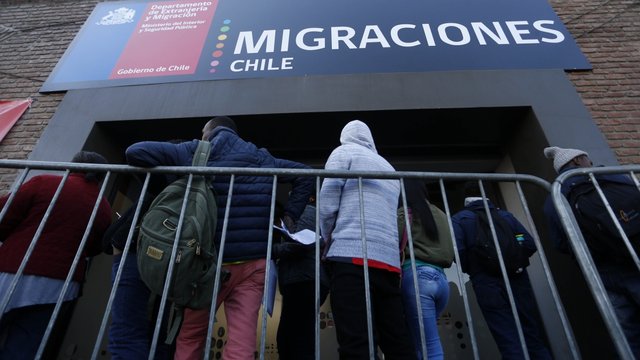
One of the driving forces influencing this scenario is the Chilean economy. The Chilean economy has a positive image in the world. This is, to some degree, because it is market-oriented which makes it very appealing for foreign investors. The Chilean economy has been praised by several economists. Oliveira and Mulder (2003) stated that:
In a region known for its turbulence, Chile stands out as a particularly stable and resilient economy. Already building a global reputation for some of its produce, like fresh fruits, salmon and fine wines, Chile has also set itself up as a benchmark for other emerging markets engaged in structural reforms, with its sound fiscal and monetary policies, relatively well-developed financial system and up-to-date institutions. (p. 1)
Transnational corporations are drawn to Chile and with them, large amounts of foreign capital. Despite not performing as well as expected by the current government, the economy is still the most attractive aspect of Chile for immigrants. This is even truer for people from countries with very damaged economies such as Haitians and Venezuelans. Immigrants come with high economic expectations because of the positive image of Chile's economy. Even if many times, those expectations are not met, their conditions tend to be better than in their home countries. Immigrants in Chile could suffer from economic hardships as a result of, among other things, the low minimum wage; not being paid, especially if they are working without a contract; and not being hired, partly because of xenophobia, racism, or because of not having enough skills in Spanish. In order to avoid making their families worried, some immigrants would not communicate their hardships in Chile to them (Ortega, 2007). This lack of communication about how difficult it is to live as an immigrant in Chile helps to keep the image of Chile as an economically attractive country in the minds of potential future migrants. Chile is a friendly country for foreign capital, investors and businessmen, but not for foreign workers. Despite that, the overall positive image of Chile as a country of healthy economy continues pulling immigrants.

Political stability is a desirable trait to find in a country where one plans to emigrate, and Chile has political stability. After a successful transition from Pinochet's dictatorship to democracy, Chile's political landscape has been characterized by clean electoral processes and a commitment from all the political spectrum to nourish this democracy. The political class has accepted the inherent pluralism found in a healthy democracy. They have agreed to disagree to such a high degree that even when there are political tension and polarization on several issues, no political party is willing to destabilize democracy in order to get what they want. They submit themselves to whatever the congress or the population vote. Sometimes, small groups of civilians are violent to policemen or toward other groups of civilians because of political reasons. However, these isolated incidents have no significant effect over the general political stability, and they are condemned by popular opinion and by politicians across the spectrum. The political stability of this country is a factor that would continue enticing immigrants to come and would shape how immigration would be handled.
October comment
My perception has changed. There was too much political stability in our institutions and among our politicians. It was the fruit of a political elite that has been gloating in the privileges of their comfortable bubble. To some degree, what I had naively interpreted as civility when they were discussing the matters of the people was indifference toward those who they were supposed to represent.

Another driving force would be the duality of abundance and scarcity mindsets (also known as mental models or mentalities) among the population. About how these mindsets affect groups of people, Freebairn-Smith (2009) found the following:
Abundance and scarcity mental models affect behavior at all levels of a system, from the individual, to the leader, to the entire ecosystem. When a system is viewed as abundant, fear of scarcity decreases. Sharing increases. However [,] if the system is seen as limitlessly abundant, waste and disregard occur. On the other hand, scarcity mental models produce hoarding and intra-system stress. If a system is viewed as excessively scarce, violence and intolerance occur. (p. 15)
Applied to the citizens of a country and their attitudes toward immigration, a scarcity mindset could fuel xenophobia. If citizens perceive that the resources that their country has are not even enough for the people of the nation, they will feel threatened by a constant and growing immigration flow. Most people are deeply scripted in a scarcity mindset (Covey, n.d., p.138) and Chileans do not seem to be the exception. How much of the population is under an abundance or a scarcity mindset would affect the levels of inclusion of immigrants and the levels of xenophobia respectively.
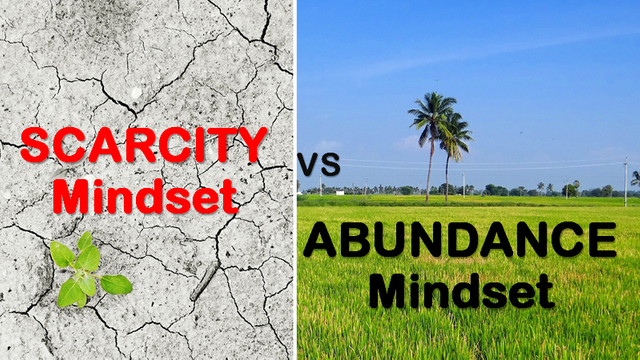
The global rise of the far right would also be an influential force in the future of immigration. Several countries from Europe and some from the American continent are seeing the growth of far-right attitudes and groups of this political position. In Chile, where the right-wing party Unión Demócrata Independiente has been moving from its far-right origins toward the center-right since its beginnings, this new global rightward tendency has manifested itself through the creation of the Partido Republicano. Several UDI ex-militants became part of this new party because they did not agree with how much UDI has strayed from its origins. The leader, José Antonio Kast, proposes a rigorous application of immigration laws and has received the support from far-right organizations such as Acción Identitaria and Movimiento Social Patriota.

October comment
UDI had been changing its behavior toward the center-right in order to keep getting votes from a people that had chosen democracy over dictatorship. It has remained relevant by catering to conservative people and businessmen and denying their far-right past. During the October social upheavals, it has become evident that it was an apparent change. The manifestation of the far right has increased in Chile, however, at this moment, it has less to do with the global rise of the far right I had described before, and more to do with the fact that UDI, its brother party (Renovación Nacional), and an incompetent authoritarian president with his sadist Minister of the Interior are showing their true colors, for example, when they blindly justify or deny the human rights violations committed by the police and the military.
Automation is another relevant element. It has been rapidly growing across the world. About its development in Chile, Vilaboa (2004) stated:
In recent years, Chilean industrial plants have been introducing automation [in their] production processes, the main reason for this decision being the raise of industrial salaries. An important effect of such policies has resulted in the materialization of many projects - that were not feasible in the past- through the use of the new low cost technologies available. (p. 1)
ViIaboa also stated in 2004 that, in future years, automation of the production process would be an unavoidable challenge for the national industry (p. 1). Now, in 2019, I would say the time has come. There is no going back from this point. The exponential development of AI and robotics is taking the jobs of millions of people and it will continue doing so (Sterling, 2019). Sterling said, "over 2% of Americans - 7 million people - lost their jobs in mass layoffs between 2004-2009" (2019). However, in developing countries such as Chile, this process is somewhat delayed compared to developed countries such as the USA. Nevertheless, automation and its inevitable consequence, the mass technological displacement of human labor force, are already here.
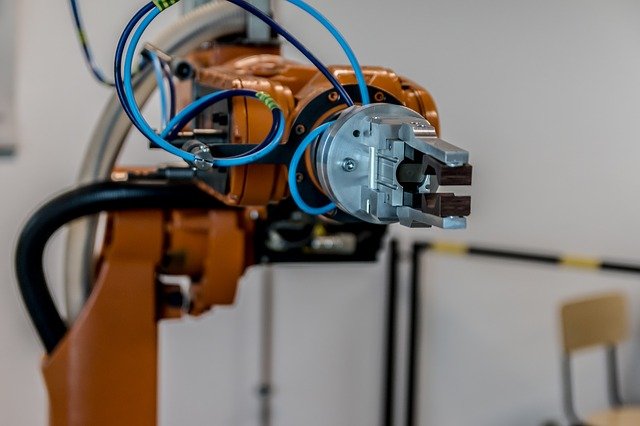
Unemployment would also be a relevant factor. It feeds a mindset of scarcity because there are not enough jobs for everyone. In a country with growing immigration, it feeds xenophobia because it makes the population think it is immigrants who are taking their jobs especially if politicians tell them it is so. The labor market is being drastically changed due to automation and the bankruptcy of companies, especially from the retail sector, which have not been able to adapt to the new times (CB Information Services, 2019; AmCham Chile, 2018). Considering this, it is more useful to analyze unemployment by focusing on these issues than it is to blame immigration. Unfortunately, Donald Trump and Sebastián Piñera have done the latter (Van der Spek, 2019). They have blamed immigration strengthening this view among the population instead of focusing on the things that have a major impact. A population that, after being confronted with unemployment, considers immigrants as responsible for the levels of it would be hostile toward immigrants in an attempt to force immigrants to come back to where they came from.

The discussion and implementation of universal basic income (UBI) is another driving force in this scenario. One of the definitions of UBI is "fixed, unconditional income given by the state to all its citizens regardless of income or work status" (Gutiérrez, 2017). UBI has been proposed as a useful tool to solve poverty and to reduce the scarcity mindset among the population of a country by Bregman (2017) and Yang (as cited in MacDonald, 2019) among other authors. As this mindset is related to xenophobia, the implementation of UBI would indirectly diminish how hostile the Chilean population is to immigrants.
Before explaining how the driving forces will unfold in this scenario, it would be sensible to name them for clarity. These factors are the Chilean economy, Chile's political stability, the duality of abundance and scarcity mindsets, the global rise of the far right, automation, unemployment, and the discussion and implementation of UBI. Xenophobia could also be considered a driving force in itself, however, here it was considered a trait of both the far right and a scarcity mindset, which are already listed as driving forces. The time scope of this scenario goes from the second semester of 2019 to 2040 inclusive. As we are currently in the second half of 2019, the beginning of the scenario will mainly be a description of current events. After these events, the speculative nature of the scenario will actually start to show itself.
2019 - 2025: Immigration levels have never been higher. An important portion of the population believes that the resources of the country are not enough for supplying Chileans and immigrants. President Piñera considers that immigration is responsible for unemployment levels (Van der Spek, 2019). This statement fed what was already a strong belief among the nation. Nationalist groups such as Acción Identitaria and Movimiento Social Patriota have organized marches against immigration. Despite that these marches do not have many people participating, they are the manifestation of a spread of xenophobia.

In education, Piñera's government makes some reforms, but they are not focused on preparing students for the digital labor market that is coming which, ironically, is something he criticized from Bachelet's administration (Vega, 2018).
Joaquín Lavín wins the 2021 presidential elections. He focuses on improving public health care and reducing crime. Despite being very interested in new technologies and using them to achieve his goals, Lavín neglects the effects of these new technologies on the labor market.
Unemployment keeps rising, and since most Chileans do not realize the impact automation has on the labor market, they are blaming immigrants. Xenophobia and other far-right traits rise significantly among the population.
2026 - 2030: José Antonio Kast takes office as president of Chile. Xenophobic violence is already high. Kast promotes tax cuts for companies and very lax state supervision to these companies. As a result of these policies, automation accelerates in a dystopian way. Big businesses fire millions of workers and, despite making much more profit than ever before as a result of the acceleration of automation, they are paying little taxes. The image of Chile as a country with a healthy economy (or should I say high GDP?) and a stable political landscape keeps attracting immigrants. Kast does not accept responsibility for the increasingly higher levels of unemployment. Instead of doing that, he takes advantage of the fact that both unemployment and immigration are high and increasing. Kast blames the first on the favorite scapegoat right-wing politicians are using, that is, immigrants. This fuels more xenophobic events.

The discussion of automation and UBI have become commonplace in the anglosphere but not in Chile; however, this is gradually changing among young Chilean cybernauts. As a result of this process in Chilean cyberspace, a presidential candidate emerges from Frente Amplio, probably someone who is from or close to Partido Pirata. In a similar fashion as Andrew Yang did in the USA, this new candidate, I will call him Mr. Pirate, tries to communicate the state of the economy and its future to the population. He informs Chileans that the reason why they are losing their jobs is not immigration but accelerating automation. He proposes UBI as a solution to alleviate poverty, scarcity mindset, the stress associated with losing a job or dealing with an expensive emergency, among other maladies. Mr. Pirate wins the elections and becomes president in 2030.
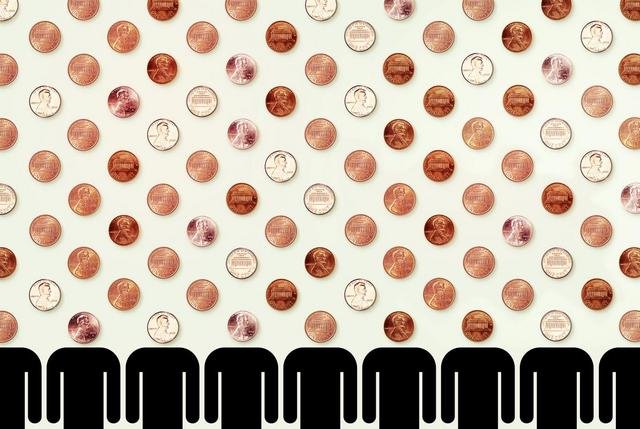
2031 - 2035: The levels of xenophobia have stagnated due to Mr. Pirate's campaign and to automation becoming so visible in daily life. The president has found strong opposition to UBI in Congress. Marches are organized by the Chilean people from all the political spectrum. Politicians end up listening to the people and UBI starts being implemented. Citizens are receiving their income. The process is rigorously monitored and data is thoroughly collected for research. In 2034, a new president takes office. He was elected because he promised to continue supporting UBI while there were some other candidates who were still complaining about it.

2036 - 2040: The amount of xenophobic violence has considerably decreased. Poverty has been significantly reduced. Workers are less afraid of losing their jobs and small entrepreneurs are more likely to take risks than ever before in order to achieve their goals. Citizens live with a mindset of abundance which means that they see the resources of their country as enough for them. The lives of immigrants have improved because Chileans do not see them as a threat to their wellbeing and are more willing to help immigrants because nationals have enough. Chile has become a country with much less xenophobia and more inclusion for immigrants.
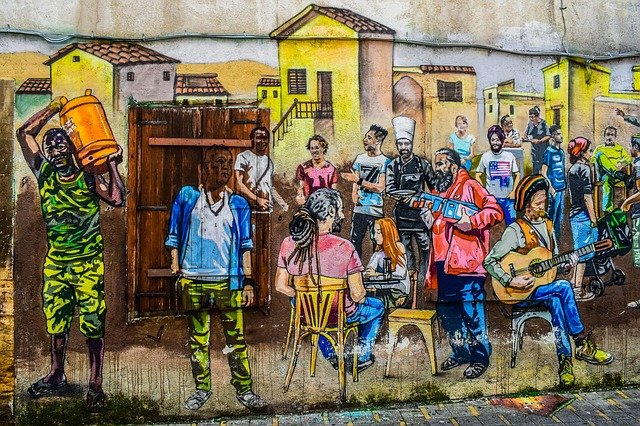
Many possibilities are for the future. In this essay, we explored just one of the infinite scenarios for immigration in Chile and the role that driving forces such as automation, abundance and scarcity mindsets, and the rise of the far right would play in its possible future. Even if the actual future turns out to be much more different than this scenario, the main purpose of scenarios is not to predict but to be prepared for things that might be in the future. This scenario could help Chilean society to think about the future of immigration, and to pay attention to the events that might be leading us into a period of dystopian automation and very strong xenophobia like the one described in the scenario, so we can avoid it. It could also work as a little bit of hope in case we do go through that phase in the future.
References
AmCham Chile. (2018, December 20). Irrupción tecnológica: La nueva batalla del retail. AmCham Chile. Retrieved from https://www.amchamchile.cl/2018/12/irrupcion-tecnologica-la-nueva-batalla-del-retail/
Bregman R. (2017, March 6). Utopian thinking: the easy way to eradicate poverty. The Guardian. Retrieved from https://www.theguardian.com/commentisfree/2017/mar/06/utopian-thinking-poverty-universal-basic-income
CB Information Services. (2019, March 12). Here's A List Of 68 Bankruptcies In The Retail Apocalypse And Why They Failed. CBInsights. Retrieved from https://www.cbinsights.com/research/retail-apocalypse-timeline-infographic/
Freebairn-Smith L. (2009). ABUNDANCE AND SCARCITY MENTAL MODELS IN LEADERS [PDF file]. San Francisco, CA: Saybrook University. Retrieved from http://citeseerx.ist.psu.edu/viewdoc/download?doi=10.1.1.470.3812&rep=rep1&type=pdf
Covey S.R. (n.d.). THE SEVEN HABITS OF HIGHLY EFFECTIVE PEOPLE [PDF file]. n.p.: FlyHeart. Retrieved from https://theedge.solutions/wp-content/uploads/2018/08/Covey-The-7-habits-of-highly-effective-people.pdf
Gutiérrez, J. (2017, June 14). Universal Basic Income: An alternative path to development? Global Americans. Retrieved from https://theglobalamericans.org/2017/06/universal-basic-income-alternative-path-development/
Instituto Nacional de Estadísticas (INE), & Departamento de Extranjería y Migración (DEM), (2019). Estimación de Personas Extranjeras Residentes en Chile: 31 de Diciembre 2018 [PDF file]. Santiago, Chile: Author. Retrieved from https://www.extranjeria.gob.cl/media/2019/04/Presentaci%C3%B3n-Extranjeros-Residentes-en-Chile.-31-Diciembre-2018.pdf
MacDonald, T. (2019, July 20). Andrew Yang Says 'Mindset Of Scarcity' Is Polarizing The Country And Pitting People Against Each Other. THE INQUISITR. Retrieved from https://www.inquisitr.com/5540420/andrew-yang-mindset-scarcity/
Oliveira, J., & Mulder N. (2003). Chile's economy: The way forward. OECD Observer, 240/241. http://oecdobserver.org/news/archivestory.php/aid/1162/Chile_92s_economy:_The_way_forward.html
Ortega S. (2007). In Search of the Chilean Paradise: Peruvians in Chile Forge a Community. Retrieved from https://nacla.org/article/search-chilean-paradise-peruvians-chile-forge-community
Sterling, A. (2019, June 15). Millions Of Jobs Have Been Lost To Automation. Economists Weigh In On What To Do About It. Forbes. Retrieved fromhttps://www.forbes.com/sites/amysterling/2019/06/15/automated-future/#1a98fd9779d8
Van der Spek, B. (2019, July 31). Why a Rise in Migration Doesn't Affect the Unemployment Rate. Chile Today. Retrieved from https://chiletoday.cl/site/why-a-rise-in-migration-doesnt-affect-the-unemployment-rate/
Vega, M. (2018, september 5). Piñera defiende agenda tecnológica: "La economía chilena es vulnerable a la automatización". biobiochile.cl. Retrieved from https://www.biobiochile.cl/noticias/nacional/chile/2018/09/05/pinera-defiende-agenda-tecnologica-la-economia-chilena-es-vulnerable-a-la-automatizacion.shtml
Vilaboa B, José. (2004). GESTIÓN DE LA AUTOMATIZACIÓN DE PLANTAS INDUSTRIALES EN CHILE. Revista Facultad de Ingeniería - Universidad de Tarapacá, 12(1), 33-41. https://dx.doi.org/10.4067/S0718-13372004000100005